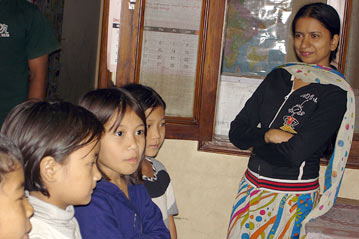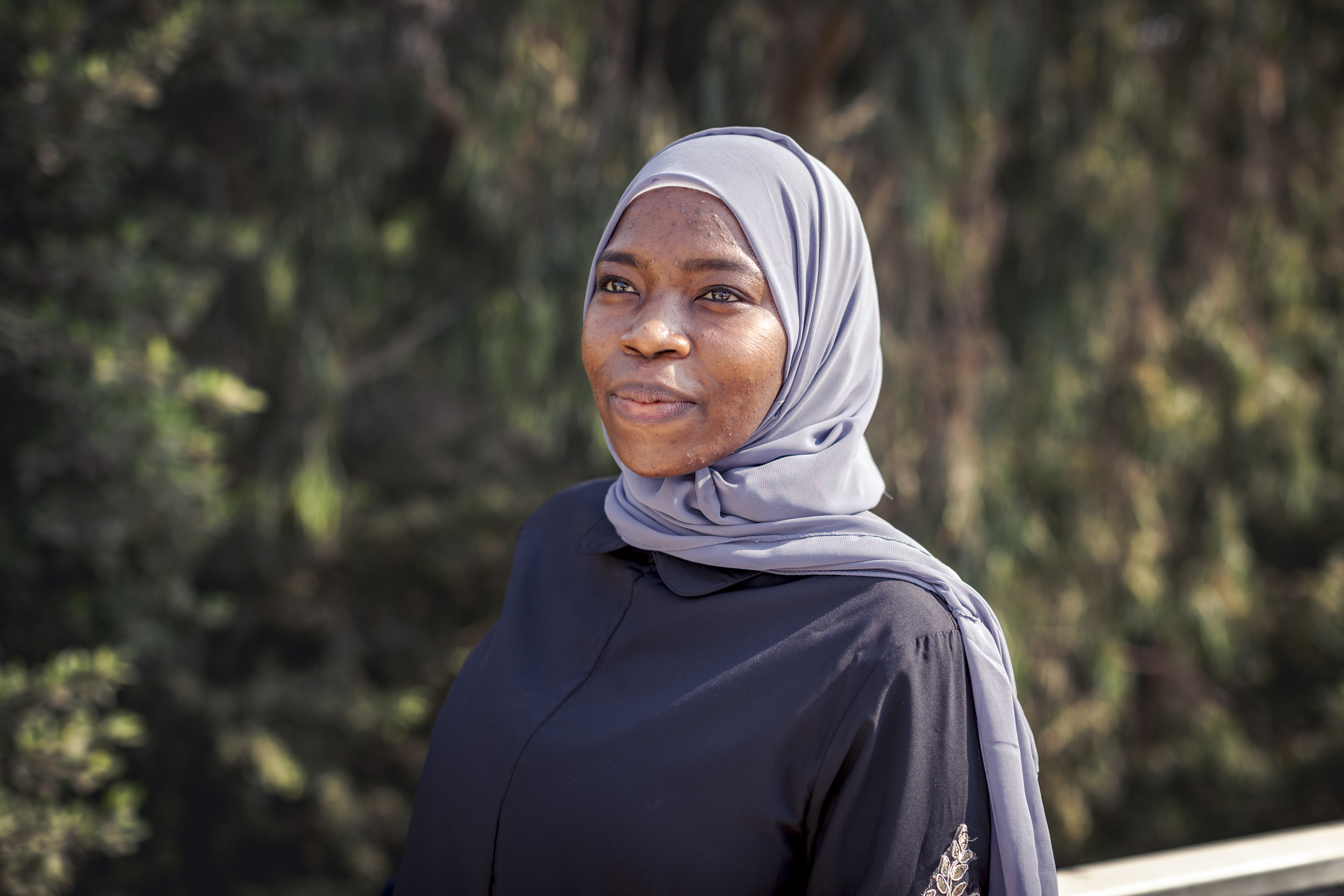Afghan refugee teaches Hindi to tots in India
Afghan refugee teaches Hindi to tots in India

NEW DELHI, India, February 20 (UNHCR) - It's a room bathed in sunlight up a narrow flight of stairs. Sounds of children learning Hindi, one of India's many languages, filter down. It sounds like a typical class in urban India, except the children are refugees from Myanmar and their teacher, Naina, is a refugee from Afghanistan.
Naina is in charge of a crèche in west Delhi for Myanmar refugees and teaches Hindi, a language she has learnt in India. The UN refugee agency supports crèches for refugee children in the Indian capital through the New Delhi YMCA (Young Men's Christian Association), which in turn empowers refugees to run these nurseries.
In her mid-20s now, Naina came to India in 1994. Her story is perhaps typical of refugees who fled the mujahideen and the Taliban regimes in Afghanistan. She was born to a Sikh family in Jalalabad, eastern Afghanistan. Her early memories are fraught with trauma - of a severed head falling at her feet in a bomb blast; of her father's strict orders not to go out; of being confined in her home at an age where children normally would be playing on the streets.
Their escape was equally horrific - she got separated from her family as they desperately tried to get onto a Kabul-bound helicopter that her father and many others had paid for.
"People were pushing, it was worse than cattle being squashed in a truck," she recalls. "I got separated and I was the only one of my family who got onto the helicopter." She spent two months alone in a Sikh temple in Kabul before her family found her. She was only 10. The family then fled to India via Pakistan.
Like thousands of Afghan refugees in India, the family made a new life for themselves in New Delhi. The family also now can apply to become naturalized Indian citizens as they have lived in the country for more than 12 years. Naina's brothers work as salesmen in a shop in Delhi, while she earns an income teaching refugee children and supervising the crèche.
"I love teaching and I love children," she says with a shy smile. She believes that as a refugee it is her duty to help other refugees, to give something back to the community she is part of.
The young woman makes no distinctions among refugees and is delighted to be able to help those from Myanmar. "It makes me very happy, very proud when I hear them bargaining with shop keepers in Hindi. It gives me immense pleasure that they can now be understood."
Some 160 children use her nursery, which also doubles as a centre for language classes for older children and tuition classes for those who need help with school work. Teachers from the Myanmar refugee community teach English, music and mathematics, and are paid a monthly stipend by UNHCR.
For Naina, life has come full circle. She married an Indian last December 2007.
Around 11,400 refugees benefit from under UNHCR's protection and assistance in India. Some 9,200 are Afghan, 1,800 are from Myanmar and the rest are a myriad of nationalities ranging from Palestinian to Somali.
By Nayana Bose in New Delhi, India








